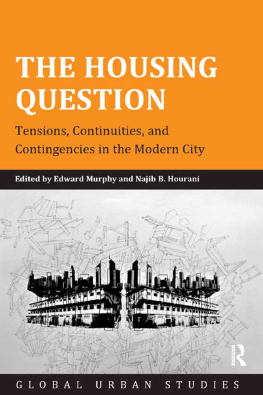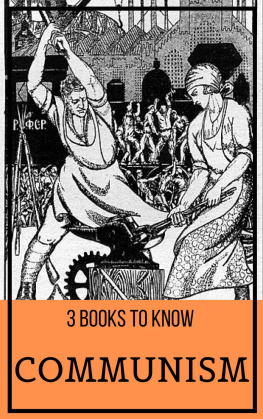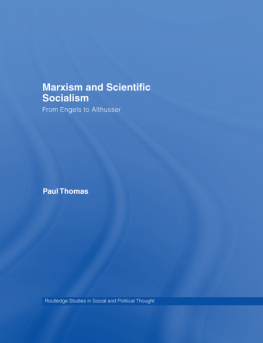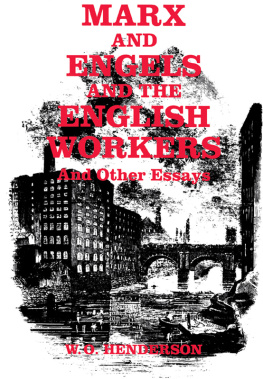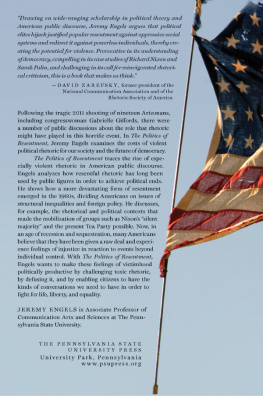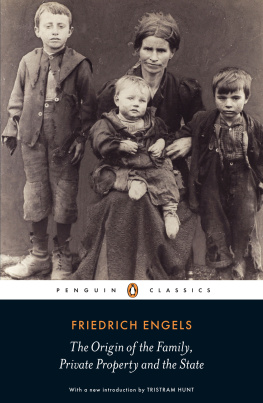Engels - The Housing Question
Here you can read online Engels - The Housing Question full text of the book (entire story) in english for free. Download pdf and epub, get meaning, cover and reviews about this ebook. publisher: Marxists Internet Archive, genre: Science. Description of the work, (preface) as well as reviews are available. Best literature library LitArk.com created for fans of good reading and offers a wide selection of genres:
Romance novel
Science fiction
Adventure
Detective
Science
History
Home and family
Prose
Art
Politics
Computer
Non-fiction
Religion
Business
Children
Humor
Choose a favorite category and find really read worthwhile books. Enjoy immersion in the world of imagination, feel the emotions of the characters or learn something new for yourself, make an fascinating discovery.

The Housing Question: summary, description and annotation
We offer to read an annotation, description, summary or preface (depends on what the author of the book "The Housing Question" wrote himself). If you haven't found the necessary information about the book — write in the comments, we will try to find it.
The Housing Question — read online for free the complete book (whole text) full work
Below is the text of the book, divided by pages. System saving the place of the last page read, allows you to conveniently read the book "The Housing Question" online for free, without having to search again every time where you left off. Put a bookmark, and you can go to the page where you finished reading at any time.
Font size:
Interval:
Bookmark:
The Housing Question
Frederick Engels
Written : 1872;
Published : (and re-published) as a pamphlet. Reprinted by the Co-operative Publishing Society of Foreign Workers;
Transcribed : Zodiac, June 1995.
Ebook by : Eleanor
HTML :
During the 1870s, a major polemical debate unfolded in Germanys worker/democratic press on the shortage of housing available to workers in major industrial centres. The influx and increase of the proletariat created a housing crisis.
On June 26 1872, Engels contributed the first of a series of articles to the Volksstaat , entitled The Housing Question. The last appeared on February 22 1873. Engels central point was that the revolutionary class policy of the proletariat cannot be replaced by a policy of reforms, because "it is not that the solution of the housing question simultaneously solves the social question, but that only by the solution of the social question, that is, by the abolition of the capitalist mode of production, is the solution of the housing question made possible."
The series criticizes Proudhonism (and petty-bourgeois socialism in general, including Lassalleanism). It also discusses things like the nature of the State, the dictatorship of the proletariat, the eradication of the antithesis between town and country, the solution of the agrarian problem, forms of the socialist reconstruction of society and the tasks of the proletarian party.
(1887)
Part 1:
Part 2:
Part 3:
The following work is a reprint of three articles which I wrote in 1872 for the Leipzig Volksstaat . Just at that time, the blessing of the French milliards was pouring over Germany: public debts were paid off, fortresses and barracks built, stocks of weapons and war material renewed; the available capital no less than the volume of money in circulation was suddenly enormously increased, and all this just at a time when Germany was entering the world arena not only a united empire, but also as a great industrial country. These milliards gave the new large-scale industry a powerful impetus, and above all they were responsible for the short period of prosperity, so rich in illusions, which followed on the war, and for the great crash which came immediately afterwards in 1873-74, through which Germany proved itself to be an industrial country capable of competing on the world market.
The period in which an old civilized country makes such a transition from manufacture and small-scale production to large-scale industry, a transition which is, moreover, accelerated by such favorable circumstance, is also predominantly the period of housing shortage. On the one hand, masses of rural workers are suddenly drawn into the big towns, which develop into industrial centres; on the other hand, the building plan of these old towns does not any longer conform with the conditions of the new large-scale industry and the corresponding traffic; streets are widened and new ones cut through, and railways run through the centre of the town. At the very time when masses of workers are streaming into the towns, workers dwellings are pulled down on a large scale. Hence the sudden housing shortage for the workers and for the small traders and small businesses which depend for their custom on the workers. In the towns which grew up from the very beginning as industrial centres, this housing shortage is as good as unknown for instance, Manchester, Leeds, Bradford, Barmen-Elberfeld. On the other hand, in London, Paris, Berlin, Vienna, the shortage took on acute forms at the time, for the most part, continued to exist in a chronic form.
It was, therefore, just this acute housing shortage, this symptom of the industrial revolution taking place in Germany, which filled the press of the day with contributions on the housing question, and gave rise to all sorts of social quackery. A series of such articles even found their way into the Volksstaat . The anonymous author, who revealed himself later on as Dr. A. Mlberger of Wurttemburg, considered the opportunity a favorable one for enlightening the German workers, by means of this question, on the miraculous effects of Proudhons social panacea. When I expressed my astonishment to the editors at the acceptance of these peculiar articles, I was called upon to answer them, and this I did. (See .) With this, however, both the polemic and also my special occupation with this question came to an end. This is the history of the origin of these three series of articles, which have also appeared as a reprint in pamphlet form. The fact that a new reprint has now become necessary I owe undoubtedly to the benevolent solicitude of the German imperial government which, by prohibiting the work, as usual tremendously increased the sale, and I hereby take this opportunity of expressing my respectful thanks to it.
I have revised the text for this new edition, inserted a few additions and notes, and I have corrected a small economic error in the first edition, as my opponent Dr. Mlberger unfortunately failed to discover it.
During this revision, it was borne in one me what gigantic progress the international working class movement has made during the past 14 years. At that time, it was still a fact that for 20 years the workers of the Latin countries had no other mental nourishment than the works of Proudhon, and, at best, the still more one-sided version of Proudhonism presented by the father of anarchism, Bakunin, who regarded Proudhon as notre maitre a nous tous, the master of us all. Although the Proudhonists in France were only a small sect among the workers, they were still the only ones who had a definitely formulated programme and who were able in the Commune to take over the leadership on the economic field. In Belgium, Proudhonism reigned unchallenged among the Walloon workers, and in Spain and Italy, with isolated exceptions, everything in the working class movement which was not anarchist was definitely Proudhonist. And today? In France, Proudhon has been completely disposed of among the workers and retains supporters only among the radical bourgeois and petty bourgeois, who, as Proudhonists, also call themselves socialists, but against whom the most energetic fight is carried on by the socialist workers. In Belgium, the Flemish have ousted the Walloons from the leadership, deposed Proudhonism, and greatly raised the level of the movement. In Spain, as in Italy, the anarchist high tide of the 70s has receded and swept away with it the remnants of Proudhonism. While in Italy, the new party is still in process of clarification and formation, in Spain the small nucleus, which as the Neuva Federacion Madrilena remained loyal to the General Council of the International, has developed into a strong party which as can be seen from the republican press itself is destroying the influence of the bourgeois republicans on the workers far more effectively than its noisy anarchist predecessors were ever able to do. Among most Latin workers, the forgotten works of Proudhon have been replaced by Capital , The Communist Manifesto , and a series of other works of the Marxist school, and the main demand of Marx the seizure of all means of production in the name of society by the proletariat, which has attained the monopoly of political power is now the demand of the whole revolutionary working class in the Latin countries also.
If therefore Proudhonism has been finally supplanted among the workers of the Latin countries also, if it in accordance with its real significance only serves French, Spanish, Italian and Belgian bourgeois radicals as an expression of their bourgeois and petty-bourgeois desires, why bother about it today? Why combat anew a dead opponent by reprinting these articles?
First of all, because these articles do not confine themselves to a mere polemic against Proudhon and his German representatives. As a consequence of the division of labour that existed between Marx and myself, it fell to me to present our opinions in the periodical press, that is to say, particularly in the fight against opposing views, in order that Marx should have time for the elaboration of his great basic work. Thus it became my task to present our views, for the most part in a polemical form, in opposition to other kinds of views. So also here. Parts One and Two contain not only a criticism of the Proudhonist conception of the question, but also a presentation of our own conception.
Next pageFont size:
Interval:
Bookmark:
Similar books «The Housing Question»
Look at similar books to The Housing Question. We have selected literature similar in name and meaning in the hope of providing readers with more options to find new, interesting, not yet read works.
Discussion, reviews of the book The Housing Question and just readers' own opinions. Leave your comments, write what you think about the work, its meaning or the main characters. Specify what exactly you liked and what you didn't like, and why you think so.


